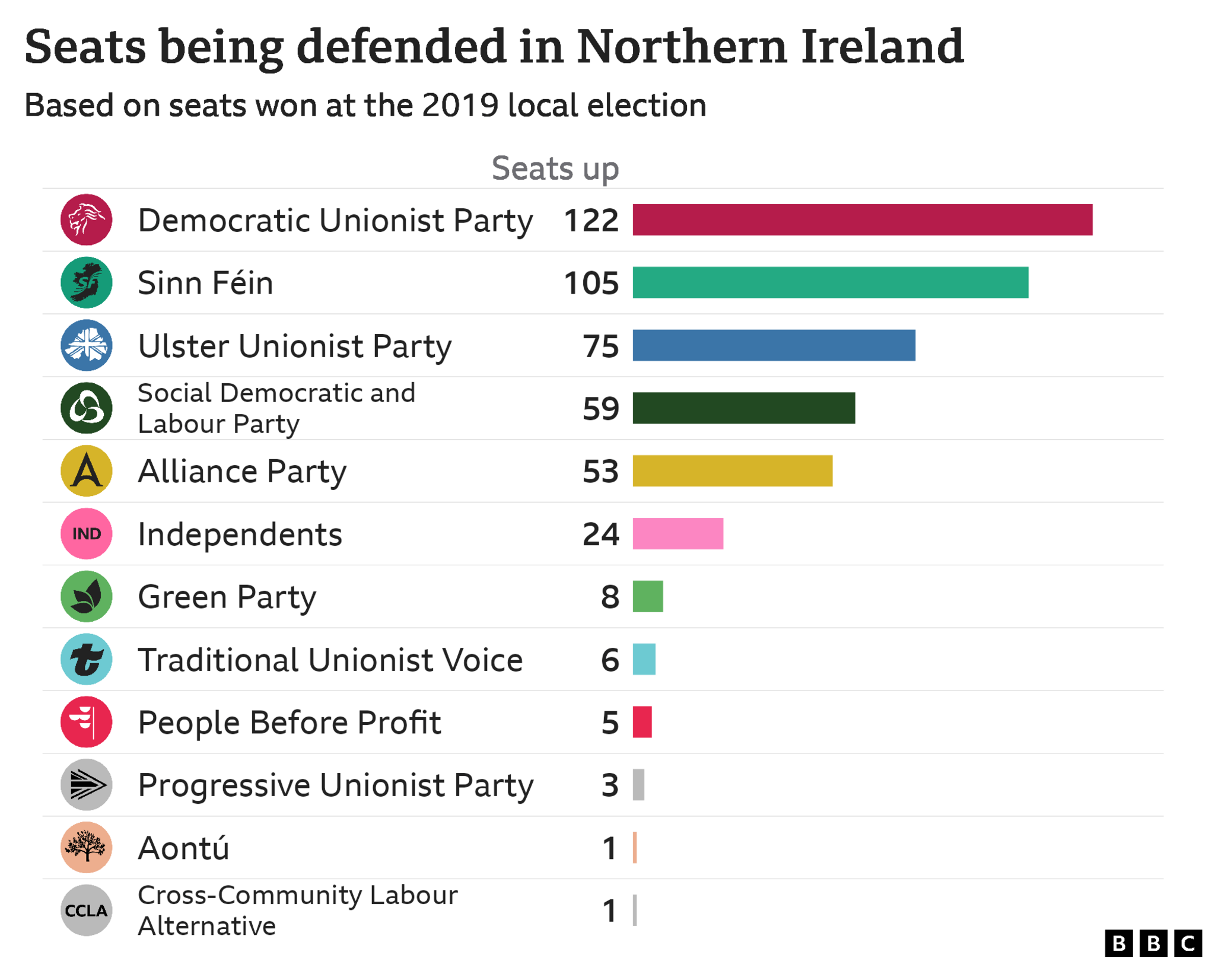Northern Ireland elections 2023: When are they and who can vote?
- Published

Voters across Northern Ireland went the polls on 18 May to choose new councillors for the first time in four years.
The elections give people the chance to decide who is responsible for a range of local issues - such as leisure services, bin collections and the rates bills paid by every household.
Where and when are elections taking place?
A total of 462 seats are being contested in all of Northern Ireland's 11 councils.
The elections were pushed back by two weeks due to the coronation of King Charles III on 6 May.
How can I vote?
The elections use the single transferable vote (STV) system, the same as is used for elections to the Northern Ireland Assembly.
Voters mark the ballot paper in order of preference - with a 1 beside their favourite candidate, a 2 beside their second-favourite and so on.
Voters choose councillors in their district electoral area (DEA). Each DEA is represented by five, six or seven councillors.
There are three ways to vote:
In person at a polling station (often in places such as schools and community centres)
By postal vote
By nominating a proxy to vote on your behalf
You will get a polling card before election day telling you where your polling station is. You do not need this card to vote.
Voters must be, external:
Aged 18 or over
Registered at an address in the area where they want to vote
A British citizen, an Irish or EU citizen or eligible Commonwealth citizen
Not legally excluded from voting
You need photographic ID to vote, such as a passport or driving licence.
A full list of acceptable ID is available on the Electoral Office, external website.

What do Northern Ireland's councils do?
Councils are responsible for a range of services, including:
Leisure services
Cemeteries
Waste collection and disposal
Local planning
Dog control
They also look after some local tourism, off-street parking and elements of heritage such as managing conservation areas.
These services are paid for by rates. Every council votes each year on what the district rate will be in their area, which is added to the regional rate set by Stormont and sent out to every eligible household as a rates bill.
Why do these elections matter?
The elections decide the make-up of each council, which has an impact on their approach to the services run by each local authority.
Can I bring my pet or my children to vote?
Animals - apart from assistance dogs - are not usually allowed in polling stations.
However, as dogs aren't specifically mentioned in UK electoral law, they are admitted to polling stations at the discretion of the local authority.
Voters are encouraged to bring children to polling stations to help educate them about democracy, but they are not allowed to mark your ballot paper.
When will the results be known?
Counting of the votes begins on Friday 19 May, the day after the election.
In 2019, counting continued past midnight and into the next day.